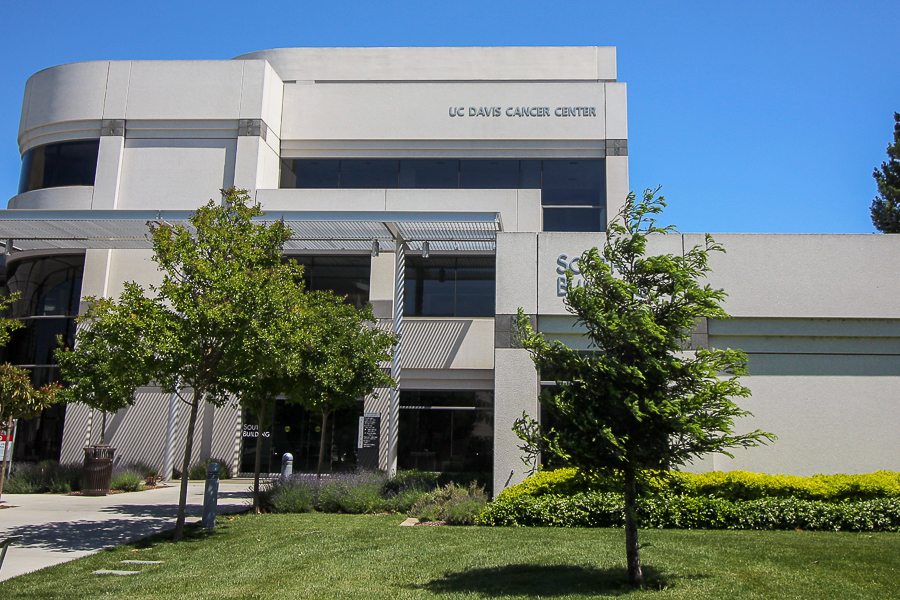
UC Davis Comprehensive Cancer Center clinical trial seeks efficient treatment for late-stage cancer
With the help of a UC Davis Comprehensive Cancer Center (UCDCCC) immunotherapy clinical trial, 60-year-old Lodi resident Victoria Pouchés has been given a second chance at life.
Pouchés was diagnosed with late-stage ovarian cancer in October 2013 and soon after began chemotherapy treatment at the San Joaquin General Hospital, French Camp. After undergoing several rounds of surgery in 2014, Pouchés was transferred to UCDCCC and began her treatment in the clinical trial in September 2015.
Clinical trials test the efficacy of cancer treatments and examine the toxicity of its side effects. When a cancer patient runs out of traditional treatment options, such as chemotherapy, he or she has the option to join a clinical trial that can result in finding a more proactive treatment.
“Some patients may have trepidation about the [clinical trial] treatments, but they often have a lot of hope that it may provide an opportunity for some clinical benefit that wouldn’t be there otherwise,” said Dr. Gary Leiserowitz, the chair of Gynecology and Obstetrics at UCDCCC.
Prior to being transferred to UCDCCC, Pouchés was not responding to the chemotherapy and surgical treatments typically used on cancer patients. She is currently part of a Phase 1 immunotherapy clinical trial for patients with late-stage cancers and travels to UC Davis every two weeks for infusions. During her visits, she has her blood drawn and tested, and her vitals checked.
Only a year ago, Pouchés was bedridden and unsure of how much time she had left to live. Today, she takes walks in her local park and has high hopes for the future.
“Does [my ovarian cancer] define me? Yes, but I don’t let it stop me,” Pouchés said. “I’m just glad for each day; I live in the moment. I feel very blessed.”
Pouchés has been working with Dr. Edwin Alvarez, a UCDCCC gynecologic oncologist, throughout the course of her treatment. She attributes the staff members’ support as making her experience dealing with cancer better.
“She is wonderful to work with,” said Mia Wilson, an UCDCCC infusion nurse who works with Pouchés. “She is optimistic and always in an upbeat mood when she comes in.”
Although Pouchés’ ovarian cancer has been suppressed, she understands that it can come back at any point. For now, she is grateful to be part of the clinical trial and to be alive.
“During my experience, I realized that it was okay to have cancer,” Pouchés said. “There’s a mental attitude about it, and the staff were there to help me understand that. Instead of it feeling like such a dirty word — cancer — it became more of like ‘Okay, this is cancer. Let’s figure this out. We can do this.’”
Written by: Emma Sadlowski — science@theaggie.org



